Urgent remedy sought for pediatrician shortage
Updated: 2016-02-19 09:36
By CANG WEI/WANG XIAODONG(China Daily)
|
|||||||||||
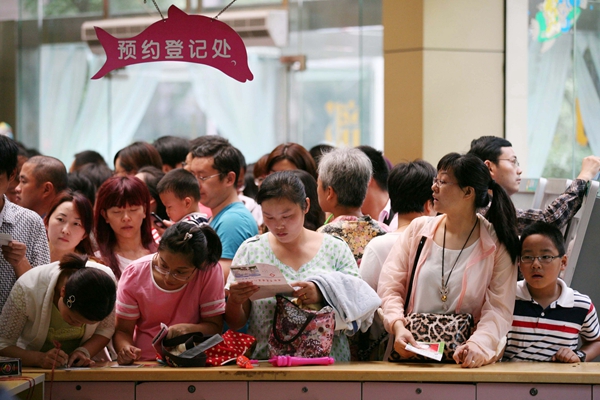 |
|
Parents gather in the outpatient hall of Nanjing Children's Hospital in Jiangsu province to register their children in July 2014.[WANG ZHUANGFEI/CHINA DAILY] |
Huang Songming, director of Nanjing Children's Hospital in Jiangsu province, said he learned from news reports that working hours for pediatricians in China are 1.48 times longer than the average working day for other physicians, but they earn just 46 percent of the average salary for doctors.
"Under such circumstances, how will medical students be attracted to pediatrics? How can you stop pediatricians from quitting?" Huang asked, adding that many pediatric nurses have also quit their jobs or have asked to be transferred to other departments.
Nanjing Children's Hospital receives more than 5,000 patients a day, more than twice the number expected when it was founded in 1953.
According to the Nanjing Health Bureau, 1.02 million children were living in the city last year, but there were fewer than 1,000 pediatricians to treat them.
According to the Guangdong Health and Family Planning Commission, only 8,200 registered pediatricians work in the province, which is home to 21 major cities.
"Pediatricians are some of the worst-paid doctors in China," said Wang Yu, a pediatrician at Huai'an Maternity and Child Healthcare Hospital in Jiangsu. "It's very cheap to consult doctors in China. It usually costs about 10 yuan ($1.50) to consult a physician and 30 yuan to see a senior attending physician.
"Chinese hospitals usually generate income by selling medicines and providing medical checkups. Children's medicines are administered according to the child's weight, so fewer medicines are sold. On average, the dose administered to one adult would be sufficient to treat 10 to 15 children. Also, compared with other medical departments, pediatrics departments conduct fewer examinations and charge lower fees," she said.
The demanding working environment has also contributed to the shortage of pediatricians, according to Wang. "When you treat a child in China, you are usually dealing with a whole family. Many parents and grandparents pay too much attention to the family's only child. They easily become extremely emotional and show no patience in the hospital."
She said doctors often joke that pediatrics and psychiatry top the list of the worst working environments in China's hospitals.
"In my hospital, we hear from time to time that pediatricians and nurses have been confronted by parents, or have even been punched or slapped. Also, younger children are unable to describe their symptoms clearly and many pediatric diseases develop rapidly-that can be dangerous both for the children and the doctors treating them," the 40-year-old said.
Related Stories
Pediatrician shortage takes toll on child services 2015-12-21 08:33
Lack of pediatricians in the time of two-child policy 2016-01-31 07:40
Two-child China targeting better public services 2016-01-11 17:19
Second-child policy to bring Beijing 580,000 newborns 2016-01-08 13:58
Li Keqiang urges sound implementation of two-child policy 2016-01-07 23:28
Today's Top News
Balkan, Austria police agree to register refugees
Turkey blames Kurds, Syria for attack
Stronger united Europe is 'in the interests of China'
Huawei to increase co-op with European partners
Turkey's Erdogan to fight forces behind bombing
Aston Martin to develop electric car with LeEco
Huawei bids to become 'Internet of Things' platform
Britain's Cameron defends EU deal
Hot Topics
Lunar probe , China growth forecasts, Emission rules get tougher, China seen through 'colored lens', International board,
Editor's Picks
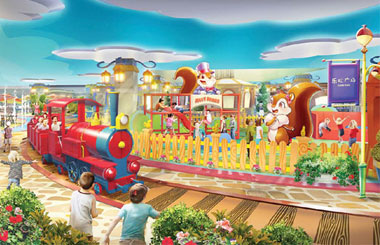
|
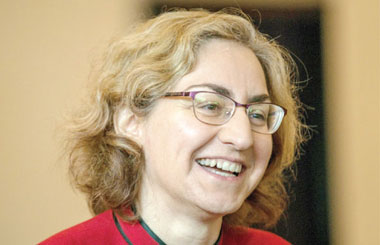
|
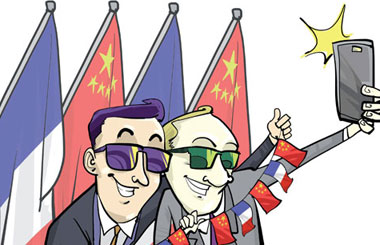
|
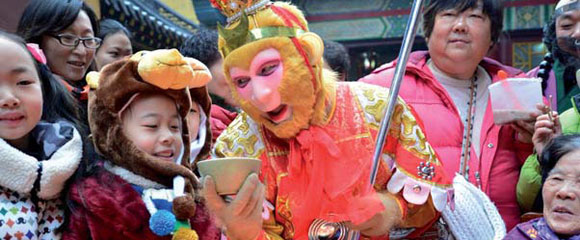
|

|

|






